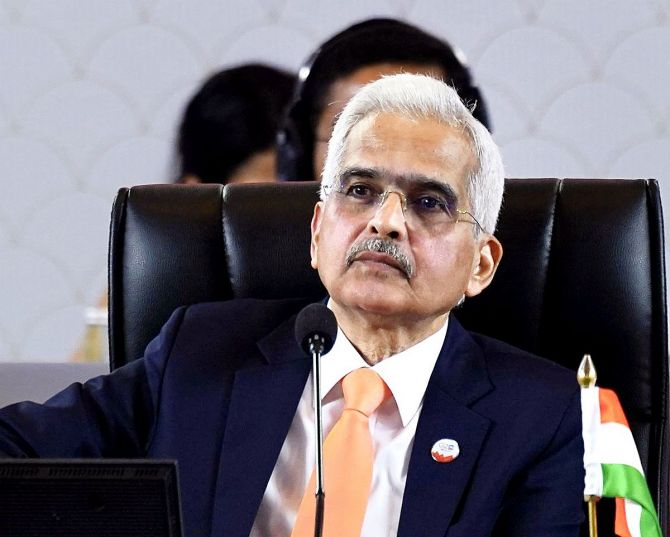The Reserve Bank of India's (RBI's) job to bring down inflation is not over, and any premature move on the policy front could undermine the success achieved so far on the price situation, according to RBI Governor Shaktikanta Das.

RBI's rate setting panel, Monetary Policy Committee (MPC), had met for three days from February 6-8.
The panel decided to leave the key policy rate unchanged at 6.5 per cent for the sixth time in row.
It is almost a year now that the repo rate or short-term borrowing rate is at 6.5 per cent.
It was in February last year when the RBI hiked the repo rate and has held the policy rate since then.
According to the minutes of the February Monetary Policy Committee (MPC) meeting released by the central bank on Thursday, Das had said at this juncture, monetary policy must remain vigilant and "not assume that our job on the inflation front is over".
He stressed that the MPC must remain committed to successfully navigate the "last mile" of disinflation that can be sticky.
Das made the remarks while voting for status quo in the key interest rate earlier this month.
"As markets are front-running central banks in anticipation of policy pivots, any premature move may undermine the success achieved so far," the governor said, as per the minutes.
He argued that price and financial stability were essential to sustain a long haul of high growth, and the monetary policy's objective was to stay focused on achieving the 4 per cent inflation target on a durable basis, keeping in mind the objective of growth.
Five of the six MPC members had voted to keep the short-term benchmark lending rate at 6.5 per cent.
The rate-setting panel consists of three external and three RBI officials as members.
Shashanka Bhide, Ashima Goyal, and Jayanth R Varma are external members, while RBI Governor Shaktikanta Das, deputy governor Michael Debabrata Patra, and executive director Rajiv Ranjan are from the central bank.
Varma, had made a case to reduce the repo rate by 25 basis points, and to change the stance to neutral.
The process of fiscal consolidation is projected to continue in 2024-25, he said, adding that this opens up space for monetary easing without risking an inflationary spiral.
"In my view, the time has come for the MPC to send a clear signal that it takes its dual mandate of inflation and growth seriously, and that it would not maintain a real interest rate that is significantly more than what is needed to achieve its target," Varma said.
RBI deputy governor and MPC member Michael Debabrata Patra, according to the minutes, said monetary policy must remain restrictive and maintain downward pressure on inflation while minimising the output costs of disinflation.
It is only when inflation subsides and stays close to the target lastingly that policy restraint can be eased, he had said.
Bhide said it was critically important at the juncture to continue with the present policy rates so that the moderation in inflation rate is achieved in a sustained manner.
According to the minutes, Goyal also agreed to the stance interpreted in terms of policy rates still being disinflationary and vote for status quo on the stance.
RBI executive director Ranjan said staying the full course with determination without getting carried away is the best bet to address these transition challenges.
"Our strong fundamentals will help us come out even stronger," he added.
The next meeting of the MPC is scheduled during April 3-5.










